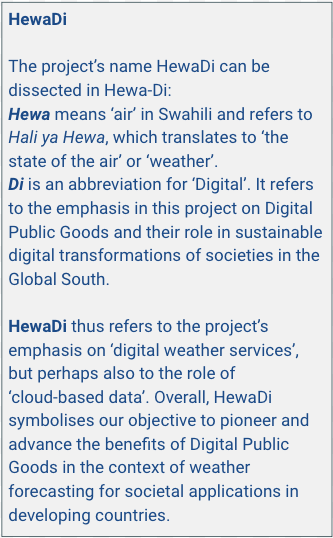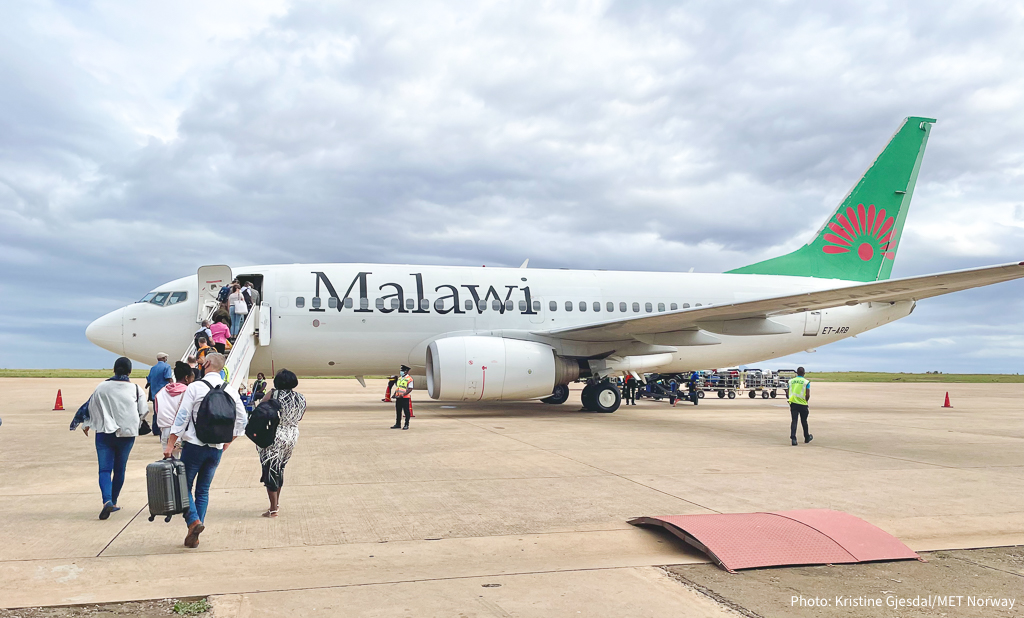Hewadi
Hewadi was a pilot project located in Malawi and Ethiopia.
Department of Climate Change and Meteorological Services (DCCMS) in Malawi and Ethiopian Meteorological Institute (EMI) are responsible for weather forecasting and climate services in their respective countries.
Based on their needs and in collaboration with them, our common goal is to increase the quality of weather forecasting and climate services and strengthen the countries' preparedness and prevention capability in order to be able to adapt important national infrastructure to changes in weather and climate. The climate challenges in the region are great and the project aim to strengthen the partner institutions for them to provide useful and usable services to both public administration and the general population. The activities also contribute to the UN's sustainability goals.
In 2019, the UN started working with digital public goods as an important means of achieving the sustainability goals. In this project, digital public goods are location-based weather data and software that will be useful in the future work to improve conditions in low-income countries.
The UN initiative Digital Public Goods Alliance (DPGA) approved the weather data set behind yr.no, from the Norwegian Meteorological Institute, as a digital common good in 2021.
Norad then asked the Norwegian Meteorological Institute to assess how free and available weather data could contribute to better weather services in selected countries in Africa. We have explored this in a pilot project in 2019-2021.
From our collaboration with our sister organizations in Malawi and Ethiopia, we have gained a clear understanding that the use of digital public goods to build better weather and climate services must be done together with competence building related to the development of weather and climate services. This should include assessment of the weather forecasts (verification) and knowledge of the use of digital services, in particular related to the dissemination of usable weather information. The UN Multi-Partner Trust Fund, the Systematic Observations Financing Facility (SOFF) will be an important component in this (both better weather forecasts and access to observations to verify these).
In all partnership projects, we build meteorology and climate knowledge by using in-house developed tools that are in daily use at MET. This way of cooperating is very well received in the partner countries. In the HewaDi project we will build on this experience. The World Bank and WMO are also satisfied with this way of working together. The activities contribute to the GFCS (WMO Global Framework for Climate Services) by strengthening these national institutions and giving them authority on weather and climate issues.
We prioritize to build mutual trust and establishing good relationships. This makes it possible to work closely and honestly on challenges in the meteorological services. From the pilot project, we noticed that project members in sister organizations take ownership of the results and planning of progress, and we get positive feedback in the way we facilitate contact between our respective meteorologists and that the project is adapted to the capacity and needs of the national institutions.
There is more work to be done before the MET Norway Weather Api (weather data behind yr.no) can be used on a larger scale, be available more locally in relation to African users, develop an online forum for feedback and collaboration, and develop a more user-friendly documentation.
In 2022 the pilot project "Weather and climate services in Africa as digital public goods" was divided into two separete but interwoven projects. A competence building project for the development of useful weather and climate services, HewaDi and a technical project to improve the API under DPGA.

HewaDi meaning
 Malawi Airlines
Malawi Airlines

